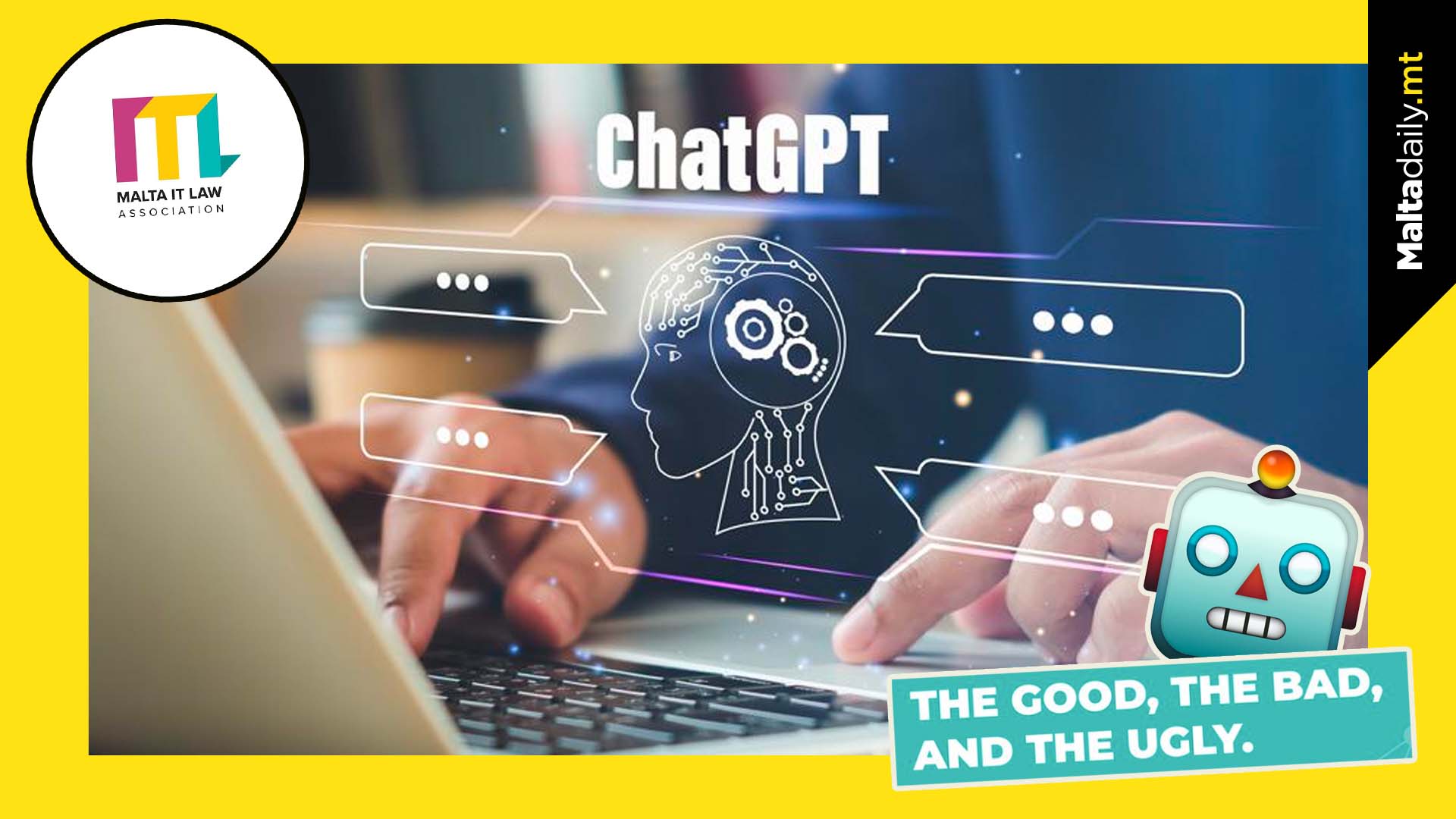The good, the bad and the ugly of ChatGPT and AI

As AI technology like the currently most prominent ChatGPT become even more popular and accessible for day to day use, the Malta’s IT Law Association (MITLA) released a white paper calling for the need for a better policy-orientation around emerging technologies.
The white paper highlights the three sides to this complex technological development. On the bright side, ChatGPT has introduced AI to the masses and can prove very useful in written tasks.This can open avenues to create new jobs and make up for certain skill shortages as companies produce higher quality work faster at lower costs.
However, as with everything, there can be a downside to this. AI, write MITLA, is simply regurgitating learnt patterns of language. This means it ‘ingests the biases inherent in the dataset it is trained upon and therefore can perpetuate such biases and be sabotaged by bad actors.’
Apart from opening up the likelihood of cheating on tests, an uglier side to the AI is that it’s ability to write convincingly lends itself to misinformation abuse. ‘By creating “believable lies” through articulate writing, it can be used by people to publish misinformation.’
The proposals by MITLA include regulating emerging technologies to minimise biases inherent in the datasets that feed them as well as analysing the education system to ensure that students are equipped with necessary tools to adapt to such tech.
Educators as well should be assisted to adapt to AI, with legal changes also required to map out responsibilities and liabilities of AI companies.
Following the AGM, the new executive committee for MITLA was appointed: Anthonio Ghio as president, Sharon Xuereb as vice president, Franklin Cachia as treasurer, Alexia Valenzia as secretary, Gege Gatt on communications, Sarah Cannataci on project management, Deo Falzon on events, Kenneth Terribile on external outreach and Keith Cutajar on education.
Read the full white paper here.
#MaltaDaily


